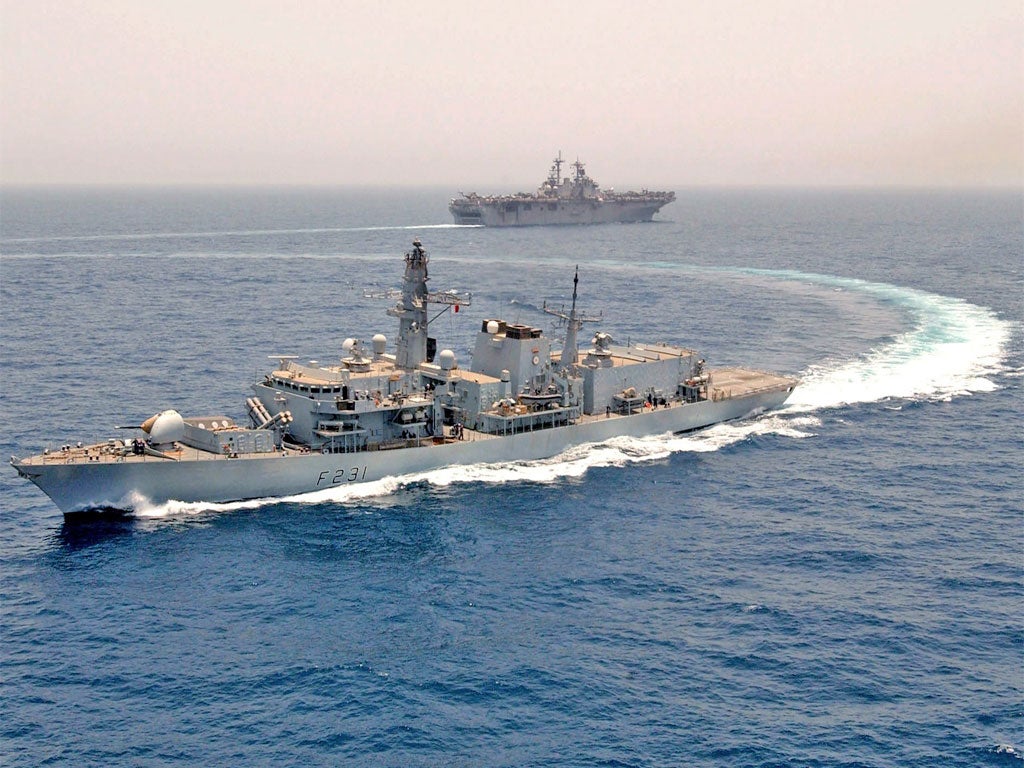Head of US navy says Britain should reconsider size of armed forces in rare public intervention
US navy secretary acknowledges heavy price of defence investment but recommends increasing budget, especially for Royal Navy, given ‘threats that exist today’
Your support helps us to tell the story
From reproductive rights to climate change to Big Tech, The Independent is on the ground when the story is developing. Whether it's investigating the financials of Elon Musk's pro-Trump PAC or producing our latest documentary, 'The A Word', which shines a light on the American women fighting for reproductive rights, we know how important it is to parse out the facts from the messaging.
At such a critical moment in US history, we need reporters on the ground. Your donation allows us to keep sending journalists to speak to both sides of the story.
The Independent is trusted by Americans across the entire political spectrum. And unlike many other quality news outlets, we choose not to lock Americans out of our reporting and analysis with paywalls. We believe quality journalism should be available to everyone, paid for by those who can afford it.
Your support makes all the difference.Britain needs to review the size and reach of its armed forces, a senior member of the US administration has warned, as the world becomes increasingly dangerous with conflicts in multiple arenas.
The US navy secretary said during a visit to London that more investment should be considered for the Royal Navy and it may also be necessary to strengthen the Army.
Carlos Del Toro’s assessment of the UK’s defence capabilities came in the wake General Sir Patrick Sanders, the head of the British Army, saying his forces were too small to fight a major war, and there was a need for a citizens army to be formed.

Speaking at RUSI (the Royal United Services Institute), Mr Del Toro, a US Navy veteran, spoke of his “tremendous respect for” this country’s military and the “truly wonderful” job the Royal Navy was doing alongside the US in operations against the Houthis on the Red Sea.
But he commented: “I think it is important for the United Kingdom to reassess where they are today given the threats that exist today.”
While he said it was entirely up to the British government to choose its own policies, “I would argue, quite frankly, that given the near-term, economic threats to the United Kingdom and the United States that investments in their Navy are significantly important.”
American and Nato commanders have warned that successive cuts to the defence budget have damaged the UK’s military effectiveness. But it is unusual for a senior member of the US administration, the country’s chief ally, to raise these concerns in public.
The Ministry of Defence is to decommission two frigates, HMS Westminster and HMS Argyll, reducing its total to nine due to problems with recruitment and retention, while the government has pledged to increase Britain’s naval presence across the world.
The size of the regular Army has been reduced to 73,520. Speaking at an armoured warfare conference in London, Gen Sanders stated that his forces, including all reserves, would not be large enough to defend the country if there is a war with Russia, and that plans for national mobilisation were essential.
Mr Del Toro acknowledged the high cost of defence. But he pointed to the money ploughed into it by the US administration, stressing that this was “absolutely necessary” with Western democracies facing foes ranging from autocratic states to heavily armed, hostile militias.
The Red Sea mission had to be undertaken, he stressed, with attacks by the Houthis in Yemen “sending reverberations across the global economy” affecting “every facet of our lives”.
The lives of sailors were being saved, he said, by preventing Houthi missiles and drones from getting through. “We need to continue doing that, even if it comes at great cost”, said Mr Del Toro.

Join our commenting forum
Join thought-provoking conversations, follow other Independent readers and see their replies
Comments